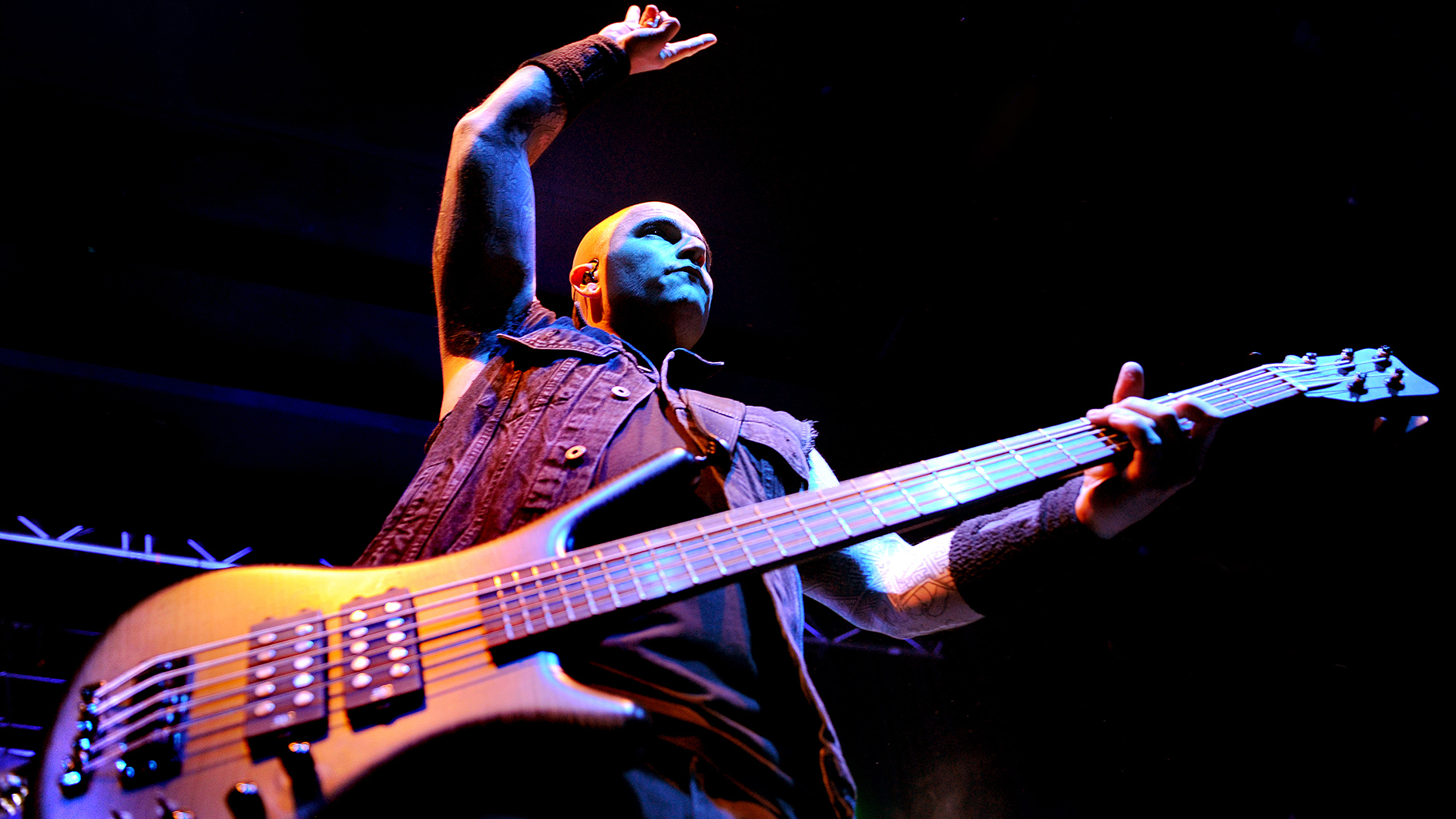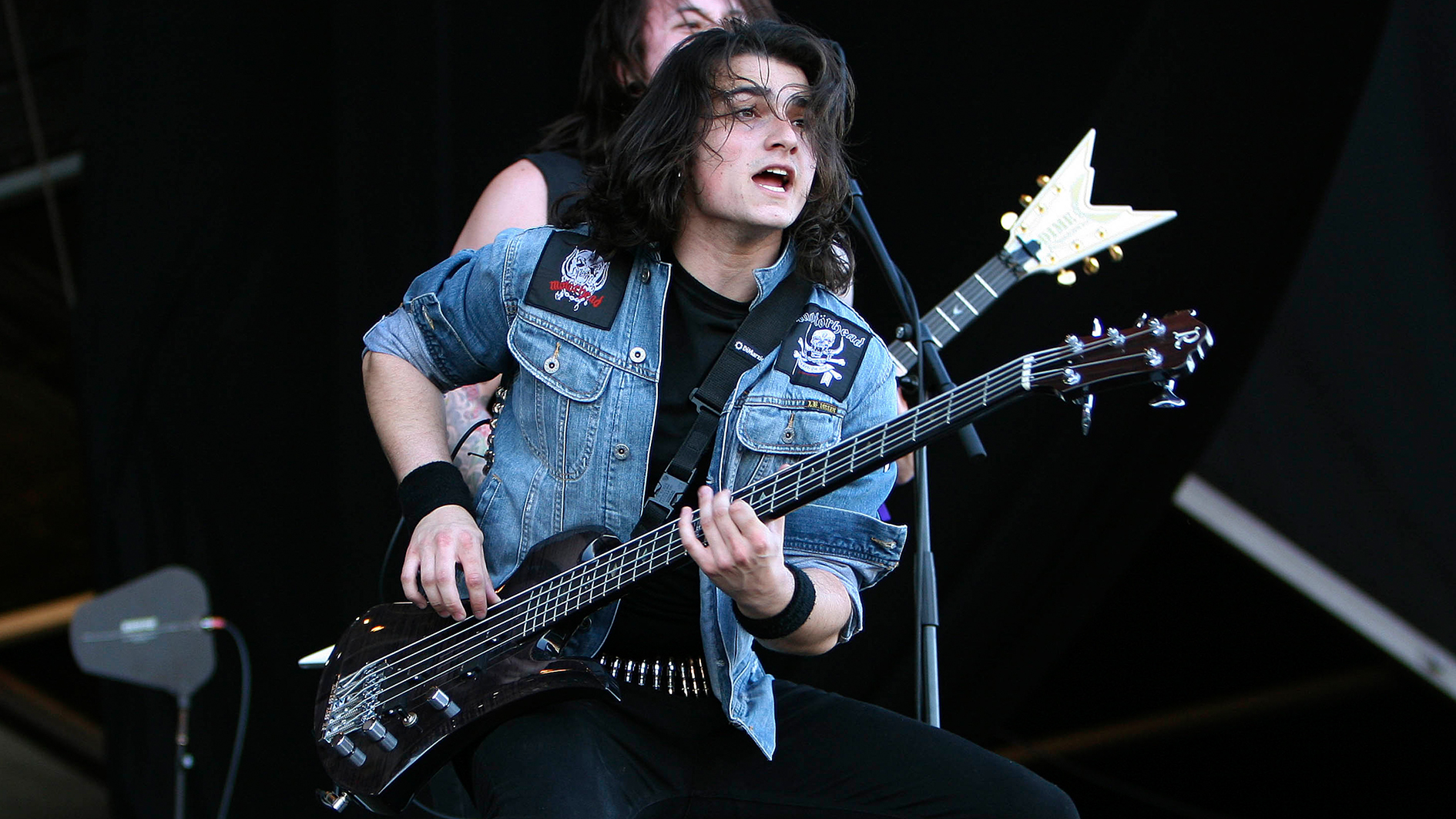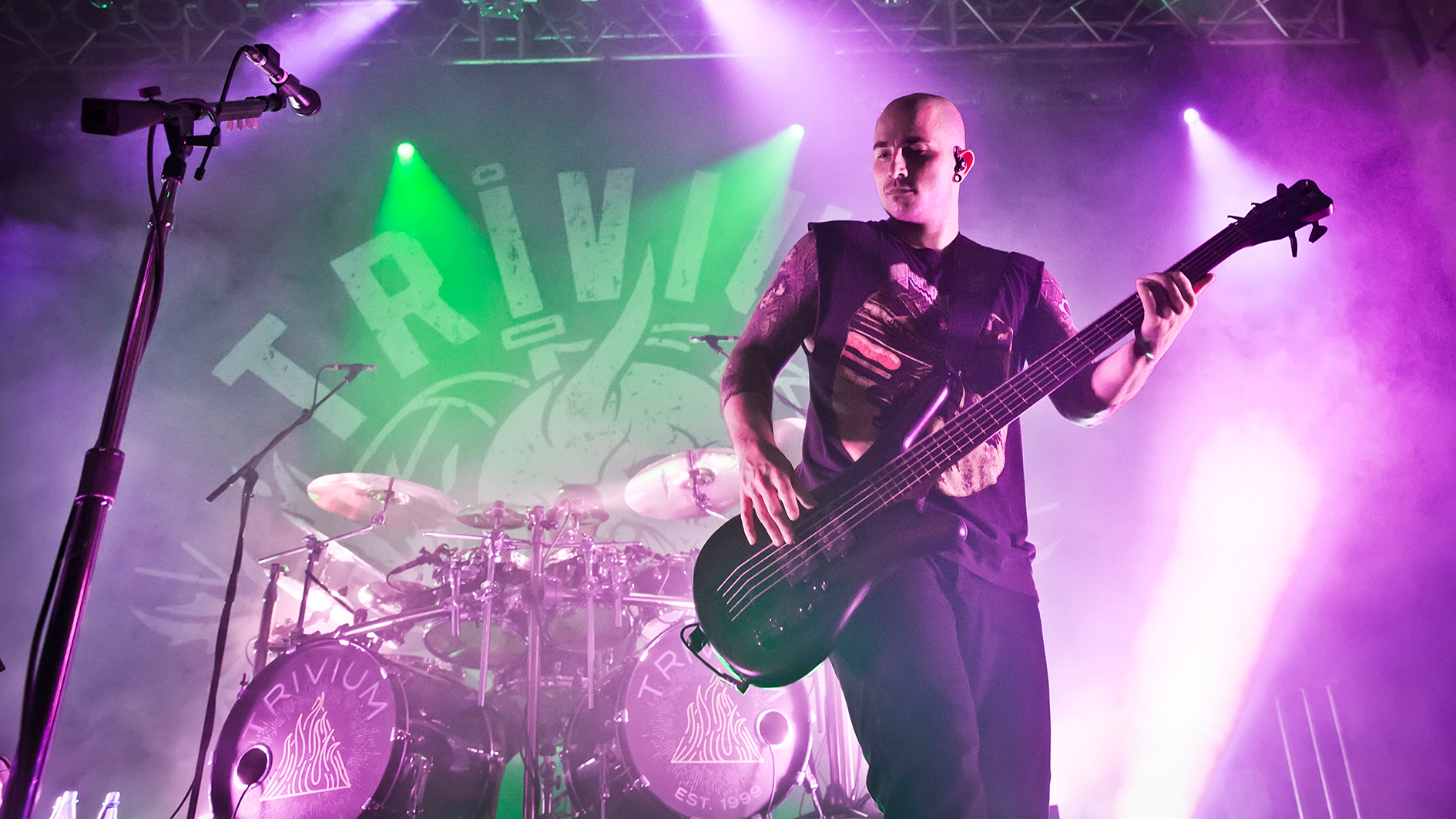Trivium's Paolo Gregoletto: "I haven’t used a cab live in years. Bass was ahead of the curve when it came to DI"
The architect of Trivium's low-end on his studio setup, and why MIDI drums were key to their monstrous new album, What The Dead Men Say

All the latest guitar news, interviews, lessons, reviews, deals and more, direct to your inbox!
You are now subscribed
Your newsletter sign-up was successful
"We’re taking things as they come. Everything is happening until it’s not,” states Trivium bassist Paolo Gregoletto, asked about this year’s touring plans. With a new album, What The Dead Men Say, out as you read this, Trivium - Gregoletto plus Matt Heafy (vocals, guitar), Corey Beaulieu (guitar), and Alex Bent (drums) - should have had a major year for touring.
For them as for so many other bands, 2020 looks likely to be the year that never happened, but he’s counting his blessings, as we all should.
“I have no excuse now not to pick up my bass and start working on new scales,” he chuckles. “We’ve been through so much as a band since I joined back in 2004, and we’ll get through this. Bass-wise, I’ve played with so many different drummers since then, and I’ve adapted to everything.
"Alex is such a great drummer that it inspires me as a bass player. I feel that now I want to up the stakes and be as unique as possible. I wear different hats in the band, with writing and so on, so I want to make sure that playing the bass is a major focus.”
A lot of metal bass players find it difficult to find the tones they require for recording, judging by how many complaints we hear on the subject here, but not Gregoletto.
“This album was maybe the quickest I’ve ever recorded when it came to getting the right tone, because I literally used my live rig. That was the first time I’ve done that in the studio. I’ve been using a Kemper live for a while, with a EBS compression pedal which I started using for live because Josh Wilbur, our producer, uses them on his albums.
"On the last record, the Kemper was blended with a re-amp of an EBS Fafner head, and I loved the way it sounded, but this time I used what I use every day because that’s my sound, right there.”
All the latest guitar news, interviews, lessons, reviews, deals and more, direct to your inbox!
We had Alex play scratch tracks on an electric kit before we did guitars, bass and vocals, so it was all MIDI and we could change stuff if we needed to
“The big change for the recording this time was that we did the drums last,” he adds. “We had Alex play scratch tracks on an electric kit before we did guitars, bass and vocals, so it was all MIDI and we could change stuff if we needed to, which made it a lot easier.
"We could say ‘Let’s add a pause here’, for example - and it’s way easier to do that with MIDI drums than it is when the actual drums have already been recorded. In that case you have to try and do something in Pro Tools, and it might not even be possible. That made things really easy.”
Sounds like a real time-saver... “Oh man, it really is. We said afterwards, ‘Why haven’t we been doing this all along? It’s way easier and so much faster.’ The usual way, you have to build the drum kit and then you have to mic everything, so it’s really labour-intensive. If you’re doing that right at the start of the sessions, the guitars, bass and vocals are waiting around, saying ‘When do we get to record?’

"This time we just cruised through, and also we could live with it for a few days before we sent it off to get real drums put on it. This is our ninth record, so it’s not gonna hurt to change things up and have a different workflow.”
For some years now, Gregoletto has been playing a Warwick Corvette, having switched away from the BC Rich basses that he used for Trivium’s early career. “It’s pretty much only the Corvette double buck these days,” he says. “I have two new ones that they made for me, which I haven’t taken on tour yet.
"They’re the same as the older one but they’re neck-through and the neck is maple, which sounds a little different. Of course I loved my American-made BC Riches and I still have them, but Warwick’s attention to detail, and the woods they use, are next level. The MEC pickups that they use allow you to change up any tones you want.”
If someone said to me ‘You can’t use your Kemper today, here’s a Sansamp instead’ I could probably dial it up immediately
Apart from the EBS compressor mentioned above, his signal chain is fairly simple, he says. “The only other effects that I use are a Dunlop bass wah and the Darkglass Duality fuzz pedal. It mixes in a good amount of the clean signal, but the notes don’t lose the low end.
"With a lot of fuzz pedals, the minute you put too much low end in it, it gets weird. I have a Darkglass plugin for the demos on my laptop, too. I always want those parts to sound like Cliff Burton’s tone.
"For the wah, I found one of his Morley pedals, but I didn’t want to take it on tour because I knew I’d never find a replacement if it broke. I needed something more compact, and the Dunlop pedal is great.”

He continues; “I haven’t used a cab live in years. Bass was ahead of the curve when it came to DI, I think. I feel like every bass player was using a Sansamp or something similar way before I ever heard of Kempers. Sansamps rule and you can’t go wrong with them, so if someone said to me ‘You can’t use your Kemper today, here’s a Sansamp instead’ I could probably dial it up immediately. I got used to that when we started using in-ears.”
So simple is best, then? He nods and explains: “It’s a tried-and-tested setup. I don’t like changing things when I’m happy with them. Years of experimenting have made me realize what I want and what I need to get there. Every time I’ve tried that, just to see what else is out there, I’ve instantly regretted it.” Mark his words...
Bass Player is the world’s most comprehensive, trusted and insightful bass publication for passionate bassists and active musicians of all ages. Whatever your ability, BP has the interviews, reviews and lessons that will make you a better bass player. We go behind the scenes with bass manufacturers, ask a stellar crew of bass players for their advice, and bring you insights into pretty much every style of bass playing that exists, from reggae to jazz to metal and beyond. The gear we review ranges from the affordable to the upmarket and we maximise the opportunity to evolve our playing with the best teachers on the planet.

